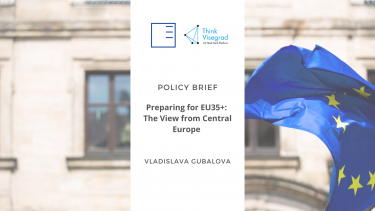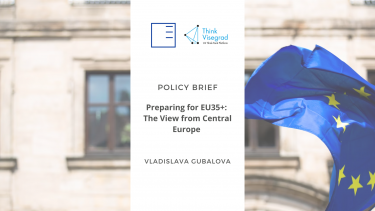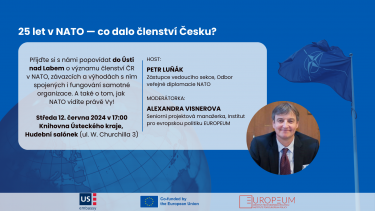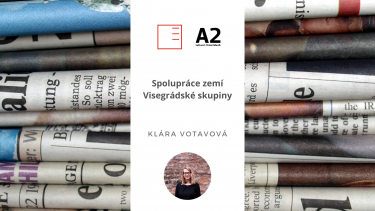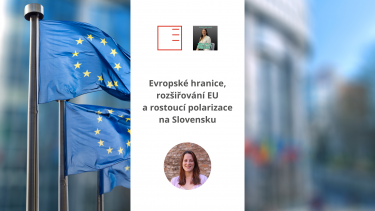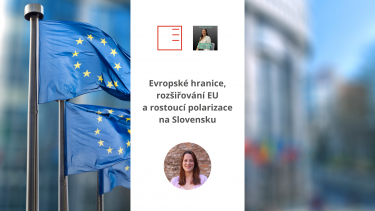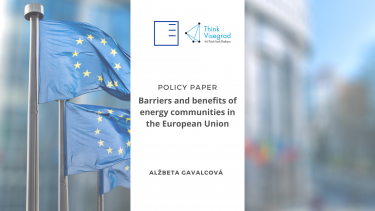Policy Brief | Preparing for EU35+: The View from Central Europe
Despite the historical support of EU enlargement policy by the Visegrad Four (V4), these Central European states are now faced with the challenge of reconciling their stances with the new realities of the process. As Ukraine and Moldova opened their accession negotiations, the EU seems to be torn on the questions associated with the future enlargement(s) - institutional reforms and changes within the EU budget. Transitioning from economic beneficiaries to potential contributors, the V4 states must evaluate the potential political and economic impacts of new members on both the EU and their domestic levels. Writes and proposes recommendations Vladislava Gubalova from GLOBSEC.
Show morePolicy Brief | Příprava na EU35+: Pohled ze střední Evropy
Navzdory historické podpoře politiky rozšiřování EU ze strany zemí Visegrádské čtyřky stojí tyto středoevropské státy před výzvou, jak sladit své postoje s novou realitou tohoto procesu. Vzhledem k tomu, že Ukrajina a Moldavsko zahájily přístupová jednání, je EU rozpolcena v otázkách spojených s budoucím rozšířením - institucionálními reformami a změnami v rámci rozpočtu EU. Při přechodu od ekonomických příjemců k potenciálním přispěvatelům musí státy V4 vyhodnotit potenciální politické a ekonomické dopady nových členů jak na EU, tak na své domácí úrovni. Píše Vladislava Gubalová z GLOBSEC.
Show moreDebate: 25 years in NATO - what has membership given to the Czech Republic?
We invite you to the second regional debate within the 25th anniversary of the Czech Republic's accession to NATO! Membership has brought benefits to the Czech Republic, but it also comes with a number of obligations. What is the importance of this alliance for us? And what do you think about NATO? Come to Ústí nad Labem to discuss these and other questions.
Show more
Debata: 25 let v NATO - co členství dalo Česku?
Zveme vás na již druhou regionální debatu v rámci 25. výročí vstupu České republiky do NATO! Členství přineslo Česku výhody, je ale zároveň spojené s řadou závazků. Jaký význam má pro nás tato aliance? A co si o NATO myslíte vy? Přijďte si s námi o těchto a dalších otázkách popovídat i do Ústí nad Labem.
Show more
A2 | Spolupráce zemí Visegrádské skupiny
Spolupráce zemí Visegrádské skupiny závisí na politické situaci jednotlivých států. V posledních letech na sebe aliance upozornila kritikou států jižní Evropy a antimigrantskou rétorikou. Svůj komentář pro deník A2 sepsala Klára Votavová, výzkumná pracovnice Institutu EUROPEUM.
Show moreTimpul Prezent | European borders, EU enlargement and growing polarization in Slovakia
What are the borders of Europe and how do they coincide with the borders of the European Union? What are the prospects for EU enlargement towards the Western Balkans and the former Soviet states? These questions are addressed by Jana Juzová, senior researcher at EUROPEUM Institute for the Timpul Prezent podcast. She also discussed the consequences of the recent attack on Slovak Prime Minister Robert Fico and highlighted the growing polarization of Slovak society and the potential threat to media independence.
Show moreTimpul Prezent | Evropské hranice, rozšiřování EU a rostoucí polarizace na Slovensku
Jaké jsou hranice Evropy a jak se shodují s hranicemi Evropské unie? Jaké jsou vyhlídky na rozšíření EU směrem na západní Balkán a do bývalých sovětských států? Těmito otázkami se v podcastu rumunského veřejnoprávního rádia zabývá Jana Juzová, seniorní výzkumnice Institutu EUROPEUM. V podcastu Timpul Prezent se také zabývala důsledky nedávného útoku na slovenského premiéra Roberta Fica a upozornila na rostoucí polarizaci slovenské společnosti a potenciální ohrožení nezávislosti médií.
Show morePolicy Paper | Barriers and benefits of energy communities in the European Union
Energy communities are an effective means to decentralize and renew our energy systems with sustainable solutions as they are usually based on renewable energy. They have already started emerging in 1970´s, yet there has been a significant increase in their development only in recent years, also in terms of their introduction into the EU legislation. Especially in Western and Northern European countries the concept already enjoys vast popularity. On the other hand, in Central and Eastern European countries (further referred to as CEE) energy communities are only beginning to emerge. The policy brief (based on literature and interviews with various stakeholders ) examines the benefits energy communities may bring, and more importantly, the main obstacles remaining in their way for greater evolution in the CEE region – and especially Visegrad countries (V4). As these initiatives progress, sharing the best practices will ensure the success of the community energy in the energy transition. Writes Alžbeta Gavalcová.
Show morePolicy Paper | Barriers and benefits of energy communities in the European Union
Energetické komunity jsou účinným prostředkem decentralizace a obnovy našich energetických systémů pomocí udržitelných řešení, protože jsou obvykle založeny na obnovitelné energii. Začaly se objevovat již v 70. letech 20. století, avšak k jejich výraznému rozvoji došlo až v posledních letech, a to i z hlediska jejich zavedení do legislativy EU. Zejména v zemích západní a severní Evropy se tato koncepce již těší velké oblibě. Naproti tomu v zemích střední a východní Evropy (dále jen SVE) se energetická společenství teprve začínají vytvářet. Tento politický brief (založený na literatuře a rozhovorech s různými zúčastněnými stranami ) zkoumá výhody, které mohou energetická společenství přinést, a především hlavní překážky, které jim stále stojí v cestě k většímu rozvoji v regionu střední a východní Evropy - a zejména v zemích Visegrádské skupiny (V4). Jak tyto iniciativy postupují, sdílení osvědčených postupů zajistí úspěch komunitní energetiky v energetickém přechodu. Píše Alžbeta Gavalcová.
Show moreThink Visegrad Fellowship offer: Call for proposals 2024
The Think Visegrad platform, which brings together think tanks from the Visegrad countries, including the EUROPEUM Institute for European Policy, is offering eight visiting fellowships to non-Visegrad expert fellows for the period Summer/Autumn/Winter of 2024. The duration of fellowships varies from 6 to 8 weeks (based on agreement with the hosting institute).
Show moreStaroměstské náměstí 4/1
Prague 1 - Staré Město
110 00
tel.: +420 212 246 552
email: europeum@europeum.org
https://www.europeum.org
